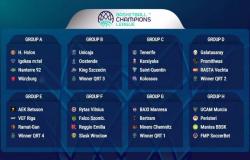Sunday 16 June the people of Varese will have a great opportunity to learn about a viable and sustainable model of agriculture and consumption that is an alternative to power agriculture and large-scale retail trade. At the Estensi Gardens in Varese in fact it will be held Des Fairan acronym that stands for Solidarity economy district of the province of Varese. For years, Des supporters have been the protagonists of an important cultural action That informs and disseminates sustainable agronomic practices who prefer lpeasant agriculturetherefore non-industrial, small and medium scale, because it is able to reduce the impact on the environment, health and waste.
(in the photo from left: Marco Bonetti, Francesca Forno and Gianni Tamino)
Photo gallery
With Des, another agriculture is possible 4 of 9
AGROECOLOGY
No more than a month ago, in preparation for this appointment, the Des of the province of Varese, in collaboration with the horticulturists of the Garden City, as part of the Value Connections project, invited two high-ranking scholars, the biologist Gianni Tamino and the sociologist Francesca Fornoto present their theses on which type of agriculture to choose in a European context marked by the EU’s sensational backtracking on sustainable agriculture.
Tamino very clearly explained the concept of “agroecology” which starts from different assumptions and practices compared to industrial agriculture. «The big mistake – said Tamino – is to apply to agriculture a concept of linearity which is alien to nature, while it would be appropriate, healthy and even convenient to apply the concept of cyclicalitywhich instead is typical of nature.”
This paradigm shift, according to the expert, would allow us to produce better, reduce negative impacts and increase sustainability without resorting to external contributions, starting with chemistry. Tamino argues that it is only by redesigning agri-food systems according to a circular logic and in full respect of biodiversity that it will be possible to achieve a integral sustainabilitythat is, which integrates the economy, the social and the environment.
THE ROLE OF THE CONSUMER
In this far from utopian vision, the consumer has a fundamental role because with his power of choice he is called to Close the circle. Having relegated organic food to the highest price range serves to justify the existence of power agriculture. Nothing justifies a high price other than poor production efficiency or the desire to keep it at that level. «We must distinguish – said the sociologist Forno – between desires and needs. The Des is part of the forms of community management of needs by promoting support for the solidarity and circular economy and the economy of common goods.”
THE ROLE OF THE DES
These forms of community management act on various levels: from the cultural to the economic one, passing through the political one. “THE Des create new representations of well-being – underlined Francesca Forno – they facilitate the construction of economic networks for sustainability and favor the birth of forms of voluntary regulation to protect work and the environment. Actions that are based on horizontality, mutualism and in any case able to practice together the fundamental traits of the future ecological and solidarity society. And above all by claiming a non-exclusive localism.”
The DES Fair is back, and arrives at the Giardini Estensi in Varese





